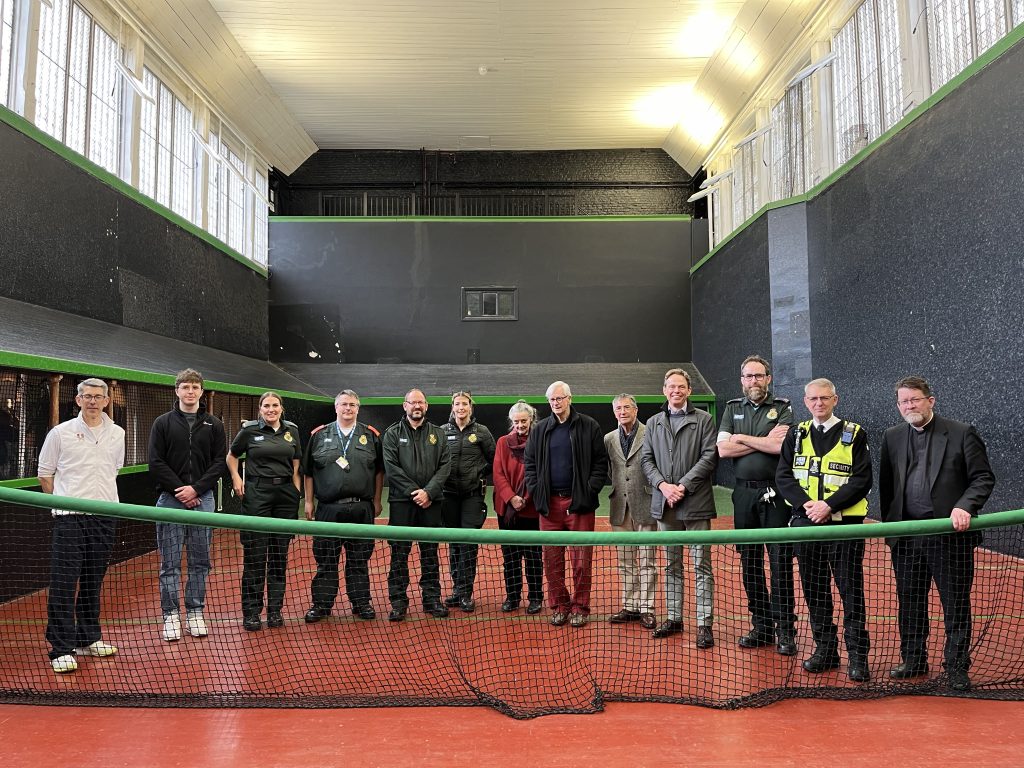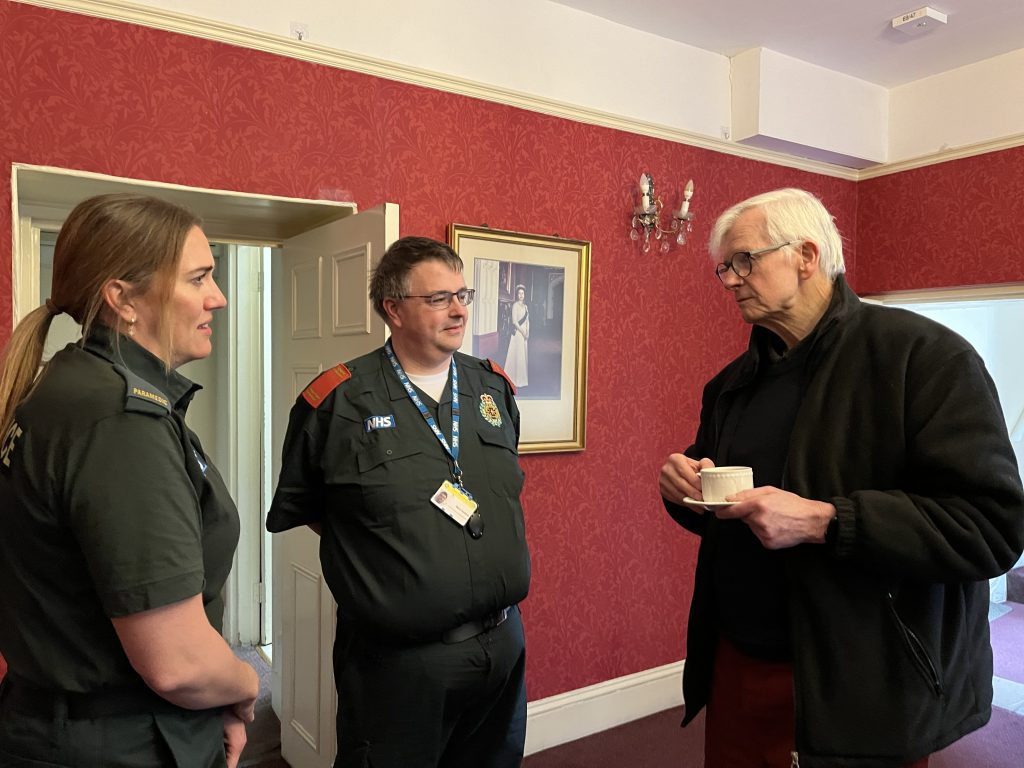82-year-old tennis player rescued in race against time at Hampton Court Palace
A seamless response by first aiders helped save an 82-year-old tennis player after he had a cardiac arrest at Hampton Court Palace.
David Peregrine-Jones, from Hampton Wick, was playing a competition final at the Royal Tennis Court. He had just won a singles game playing against a “sprightly” 22-year-old when he suddenly collapsed.

The Royal Tennis Court members and Palace staff quickly ran to help and, with no time to lose, fitted a nearby defibrillator to his chest. A defibrillator is a machine which uses an electric shock to restart a patient’s heart when they’re in cardiac arrest and their heart has stopped beating.
David said: “It was a fantastic effort and I’m very lucky. The reason the team successfully handled my cardiac arrest initially was because they installed defibrillators very close to the court and they were trained in life-saving skills.
“When I had the arrest, the Royal Tennis Court team stepped in within seconds. There was no delay. It was seamless.”
David’s heart was restarted by their prompt actions even before London Ambulance Service arrived on scene in six minutes.
Ambulance crews, including Glenda Hall, Jean-Pierre Kotze, Paul Nethersole, Elisa-Maria Livesey and Mark Faulkner took over David’s treatment at the tennis court.

Consultant Paramedic Mark Faulkner, who also leads the London Ambulance Service Resuscitation Programme, said: “David is incredibly lucky that life-saving equipment was on site, and the trained responders and expert help arrived so quickly. When someone has a cardiac arrest every second counts and the minutes before the arrival of the ambulance service are vital to ensure the patient survives.
“The interventions needed are simple and can be learnt in just a few minutes. You buy time by applying chest compressions hard and fast in the middle of the chest. Whenever there is a public access defibrillator available, this should also be used.”
David received treatment, including surgery for an implantable cardioverter-defibrillator (ICD) to provide a shock if his heart stops again.
David is now recovering at home and looks forward to getting back to an active life, including tending to his allotment, dinghy sailing and charitable work with his livery company.
Looking back over the most traumatic experience of his life, he added: “They were all so careful, compassionate, and clear about what needed to happen to me to get the best outcome. I’m very happy to have come through it all intact.”
Nick Wood, Head Professional at the Royal Tennis Court, said: “A combination of being prepared and good fortune enabled myself and fellow Royal Tennis Court members to act so quickly. Having a defibrillator located nearby undoubtedly increased the chances of successfully resuscitating David.”
London Ambulance Service is aiming to make London a city of lifesavers and it only takes a few minutes to learn the simple steps to take when someone is in cardiac arrest. Help us to help Londoners by becoming a London Lifesaver today.
London Lifesavers is funded through a grant provided by NHS Charities Together to our charity, London Ambulance Charity.

Follow us on social media: